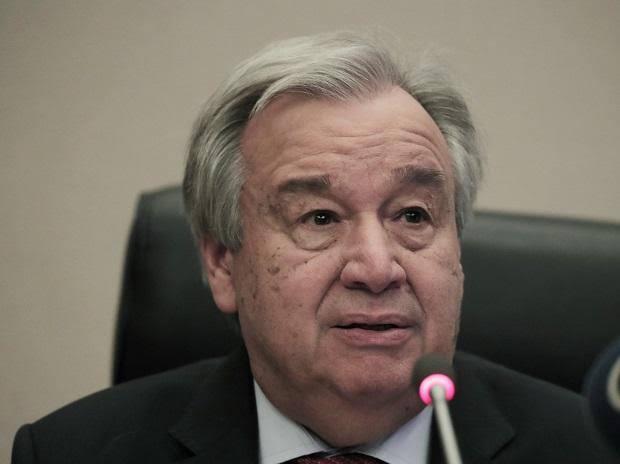
On Tuesday, U.N. Secretary-Normal Antonio Guterres urged rich nations to finish coal use by 2030 so the world can meet its targets to curb international warming, urging G7 nations to make that dedication earlier than or at a leader’s summit in June.
In a video message to a digital gathering of the “Powering Previous Coal Alliance”, Guterres mentioned emissions-cutting pledges by governments fell far brief of what’s wanted to restrict local weather heating to 1.5 levels Celsius above preindustrial ranges.
But when speedy motion had been taken to finish use of what he known as the dirtiest, most polluting and more and more expensive fossil gas in energy era, “then we’ve got a combating likelihood to succeed”, he added.
“Phasing out coal from the electrical energy sector is the only most vital step to get in keeping with the 1.5-degree objective,” the U.N. chief mentioned.
Scientists estimate that coal use in electrical energy era should fall by 80% under 2010 ranges by 2030 to fulfill the 1.5C warming restrict, which is the extra formidable objective set by greater than 190 nations within the 2015 Paris Settlement.
Guterres mentioned all 37 international locations within the Organization for Financial Co-operation and Improvement (OECD) – a gaggle of primarily high-income nations – ought to promise to cease utilizing coal by 2030, and the remainder ought to accomplish that by 2040.
“Science tells us that is important to fulfill the Paris Settlement targets and defend future generations,” he added.
The Powering Previous Coal Alliance was shaped by Canada and Britain in 2017 to deliver collectively governments and enterprise to speed up the phase-out of “unabated” coal energy, the place there isn’t any expertise in place to take away carbon emissions.
It now has greater than 120 members, with 10 new ones becoming a member of on Tuesday, together with Hungary, Uruguay, the Japanese metropolis of Kyoto, and utilities Nationwide Grid of Britain and Ontario Energy Technology of Canada, in addition to pension suppliers.
The alliance mentioned in a press release that progress on phasing out coal had sped up throughout OECD and European Union member states, with over 55% of working coal plant capability retired since 2010 or scheduled to retire by 2030.
Cheaper renewables
The British authorities, nevertheless – host of each the June G7 summit and this 12 months U.N. local weather talks – has come underneath fireplace for failing to dam native plans for a brand new coal mine in northern England, which backers say is required for metal manufacturing.
Cumbria county council has now mentioned it should rethink the mine software after the unbiased UK Local weather Change Committee and inexperienced teams mentioned going forward with it may undermine Britain’s push for net-zero emissions by mid-century.
The UK authorities is contemplating bringing ahead a deliberate ban on coal-fired energy era by a 12 months, to October 2024, with the nation’s reliance on coal for electrical energy already having dropped from 70% in 1990 to underneath 2% right this moment.
Canada, in the meantime, mentioned in 2018 it could remove conventional coal-fired electrical energy by 2030, however would proceed to make use of coal for processes like steel-making. It’s the world’s fourth largest exporter of coal for that goal.
Guterres famous that, as the price of photo voltaic and wind energy has fallen, constructing new renewable power capability has grow to be cheaper than putting in coal-fired vegetation in just about all markets.
He mentioned governments, corporations and native authorities ought to cancel all coal tasks within the pipeline, finish worldwide financing for coal vegetation and shift funding to renewables.
He additionally pointed to the necessity for a worldwide effort to organise a “simply transition” for employees within the coal trade. That may determine the wants of coal communities the place jobs shall be misplaced and supply concrete options on the native stage.
The Powering Previous Coal Alliance mentioned setting an “early date” for a good and full transition away from coal, that might defend employees, was a important first step to achieve the long-term net-zero commitments just lately adopted by many international locations.
The alliance and Bloomberg Philanthropies additionally launched the “Bloomberg International Coal Countdown”, a web-based knowledge dashboard that tracks the retirement of coal vegetation around the globe.
Svenja Schulze, Germany’s surroundings minister, mentioned that in a world aiming to grow to be local weather impartial by the second half of the century, “coal-based energy is an outdated mannequin”.
“Investments in renewable energies, nevertheless, clearly provide a aggressive edge,” she added. “Immediately, they’re already more cost effective and create new jobs.”




